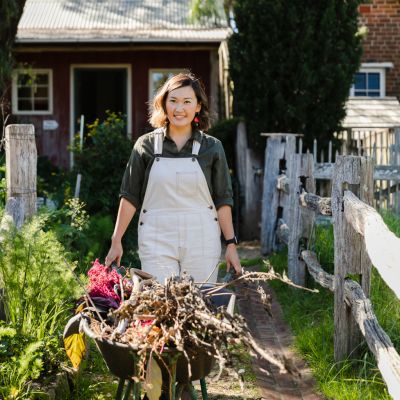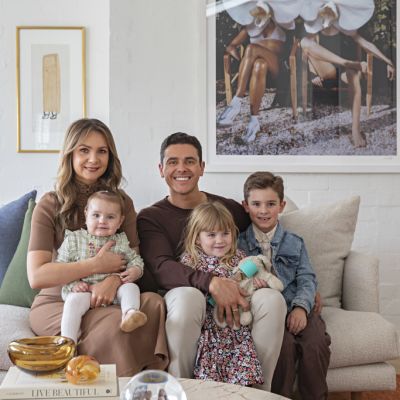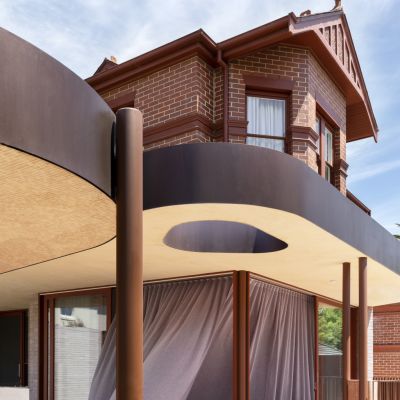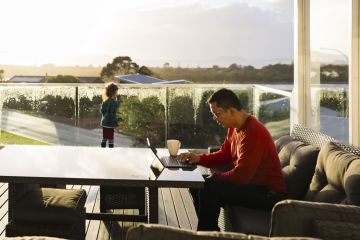Could Australia's waterways be the answer to housing supply issues?
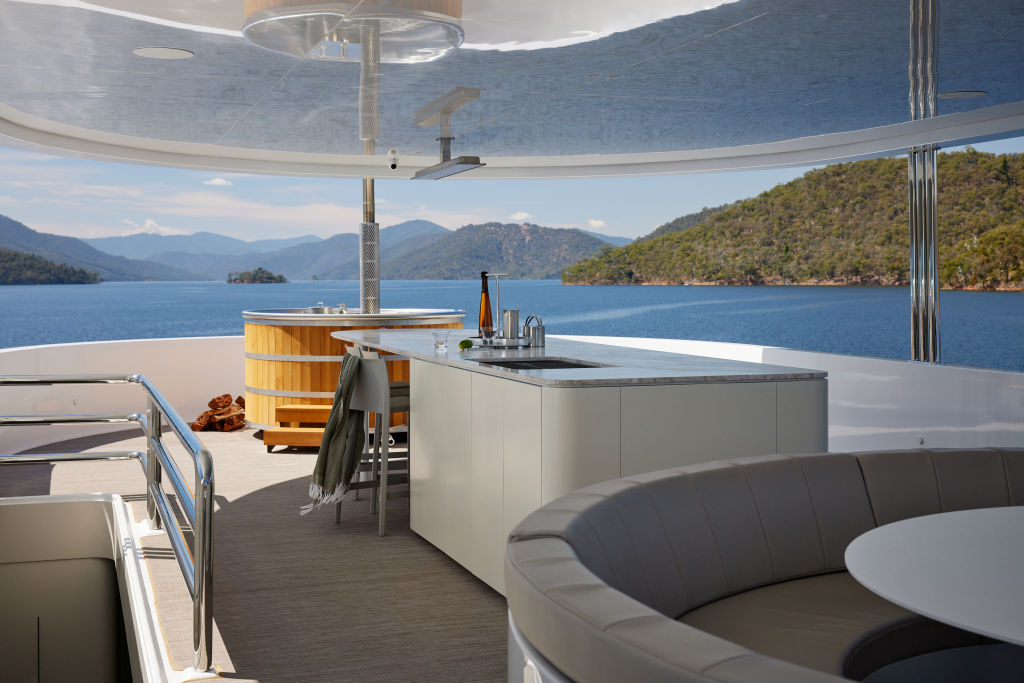
Summers spent on the family houseboat at Lake Eildon are some of Stephen Jolson’s most treasured childhood memories.
His grandparents, parents and four siblings would spend holidays and weekends on a 1960s houseboat powered by a single car battery and an outdoor generator.
“It was like a glorified caravan,” Jolson says.
“But the experience of quality family time hasn’t changed. I think it’s one of the few places in the world where the landscape hasn’t been developed.
“There’s something quite amazing about going back to a place where you feel you can open up a door to your childhood.”
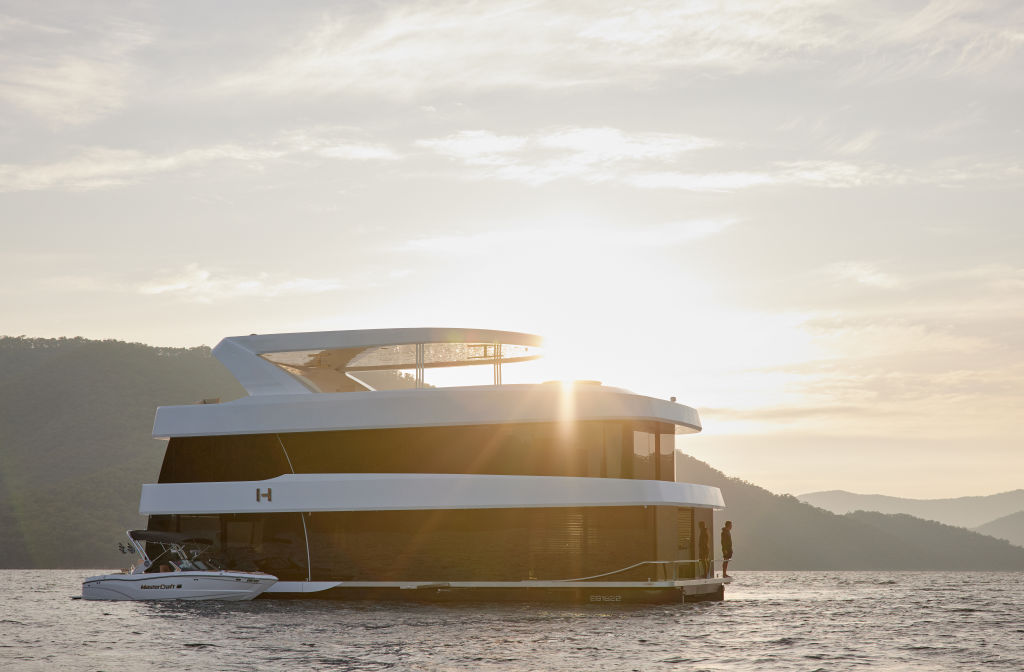
Jolson, a Melbourne-based architect, drew on his idyllic holiday memories to frame the design of his new houseboat, Halcyon, which will also reside on Lake Eildon, two-hours north-east of Melbourne.
In what is more like an upscale apartment on water, the houseboat features three en suites, a rooftop entertaining area and wood-fired hot tub imported from New Zealand.
Savvy storage solutions and strong connections to the water dominate the design. The television is hidden by joinery in the living space and floor-to-ceiling glazing allows for water views from each and every room.
“We wanted to maximise the connection at all times between inside and outside,” Jolson explains.
“So, the windows come down to the floor and you’re basically on the water. The glass walls have been designed in such a way that you can slide the doors back so that you’re literally in a room surrounded by water.”
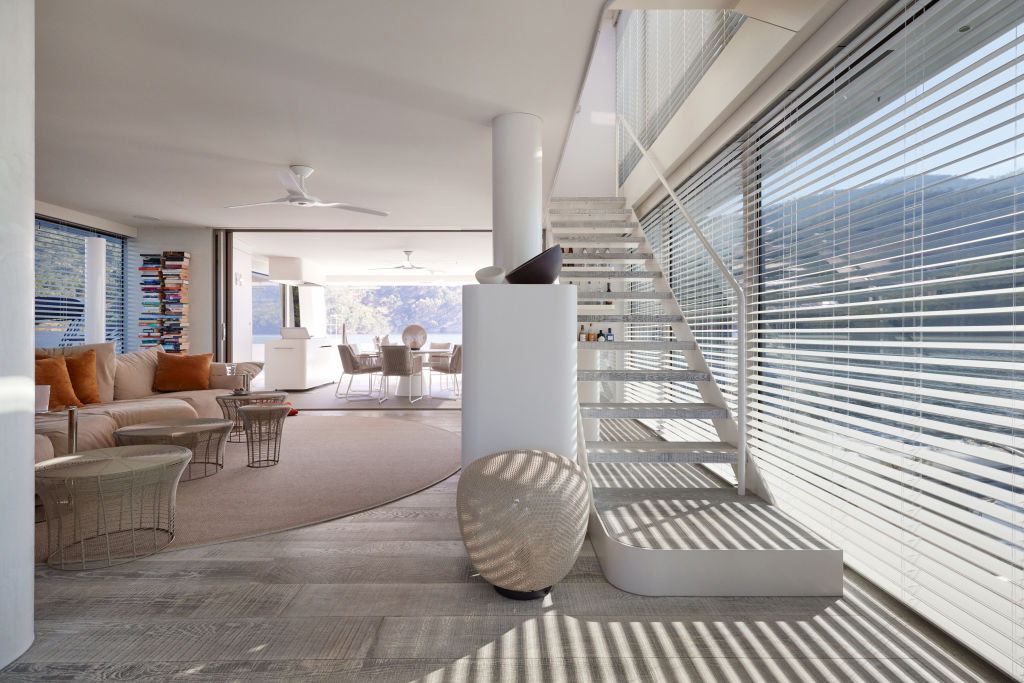
The luxury, four-bedroom watercraft is among a new breed of houseboats taking to Australian waters as holidaymakers search for creative ways to travel.
Demand for houseboat holidays has risen in recent years and it’s been welcomed by Julie and Ken Montgomery, owners of Murray River Houseboats, who like other commercial operators, are recovering from the devastating Murray River floods in January.
“Between September and May I would say our occupancy would be 97, 98 per cent and in winter on average around 50 per cent,” Julie says.
“With COVID and the flood last year it’s been a difficult balancing act, but looking forward everything’s looking positive.”
The Montgomerys operate six houseboats in the Echuca, Moama and Rich River region. Hiring one costs between$3350 and $6890 for a week during the peak December, January school holiday period.
At maximum capacity, this equates to $123 per night, per person on a large boat with all the mod-cons such as en suites and bedroom televisions, or $68 per night, per person on a smaller boat with more basic features.
While the cost may seem attractive to capital city renters paying a median of $580 per week and mortgage holders struggling in the wake of consecutive interest rate rises, permanent houseboat living is not legal everywhere in Australia. It is banned in NSW and in other states, including Victoria, there is a capped number of houseboat licences.
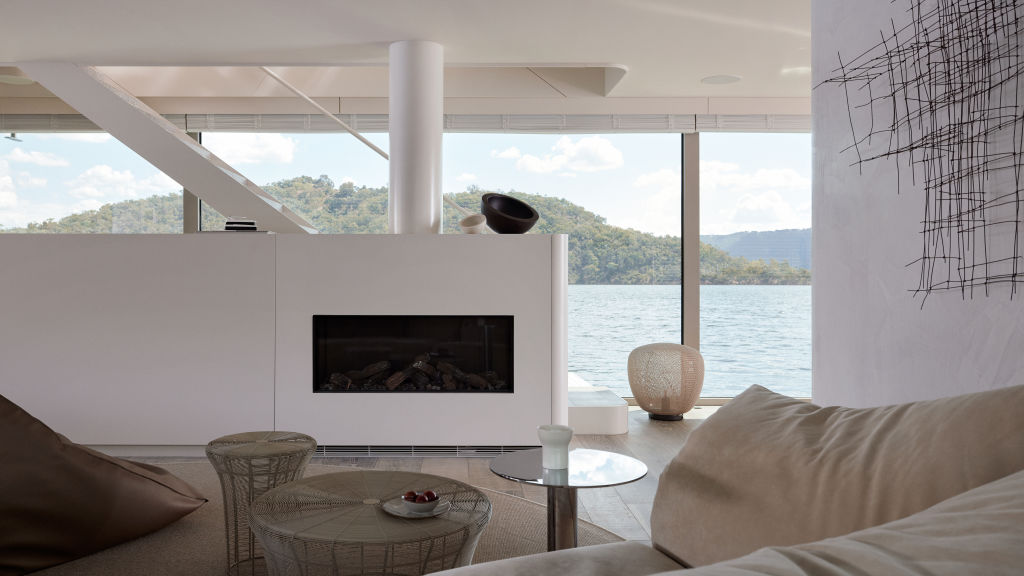
“Liveaboard owners”, as they are known, must also pay fees to keep houseboats docked at marinas and not every marina allows boat owners to live on board.
Unlike international cities, houseboats are not a feasible housing alternative in Australia, says Nicole Gurran, lecturer in urban and regional planning at the University of Sydney.
“The issue that we face in Australian cities is not so much the lack of housing units, it’s the lack of access to them,” she says.
“We’ve certainly got sufficient vacancy stock and a flourishing holiday rental market, so it’s not a question of do we now start to put dwellings on the waterways because we’ve run out of surface area.”
As far as holiday accommodation goes, houseboats are hitting their stride. Improvements to motoring technology has seen them become easier to dock and launch, and enhanced interior design is making them more comfortable than ever before.
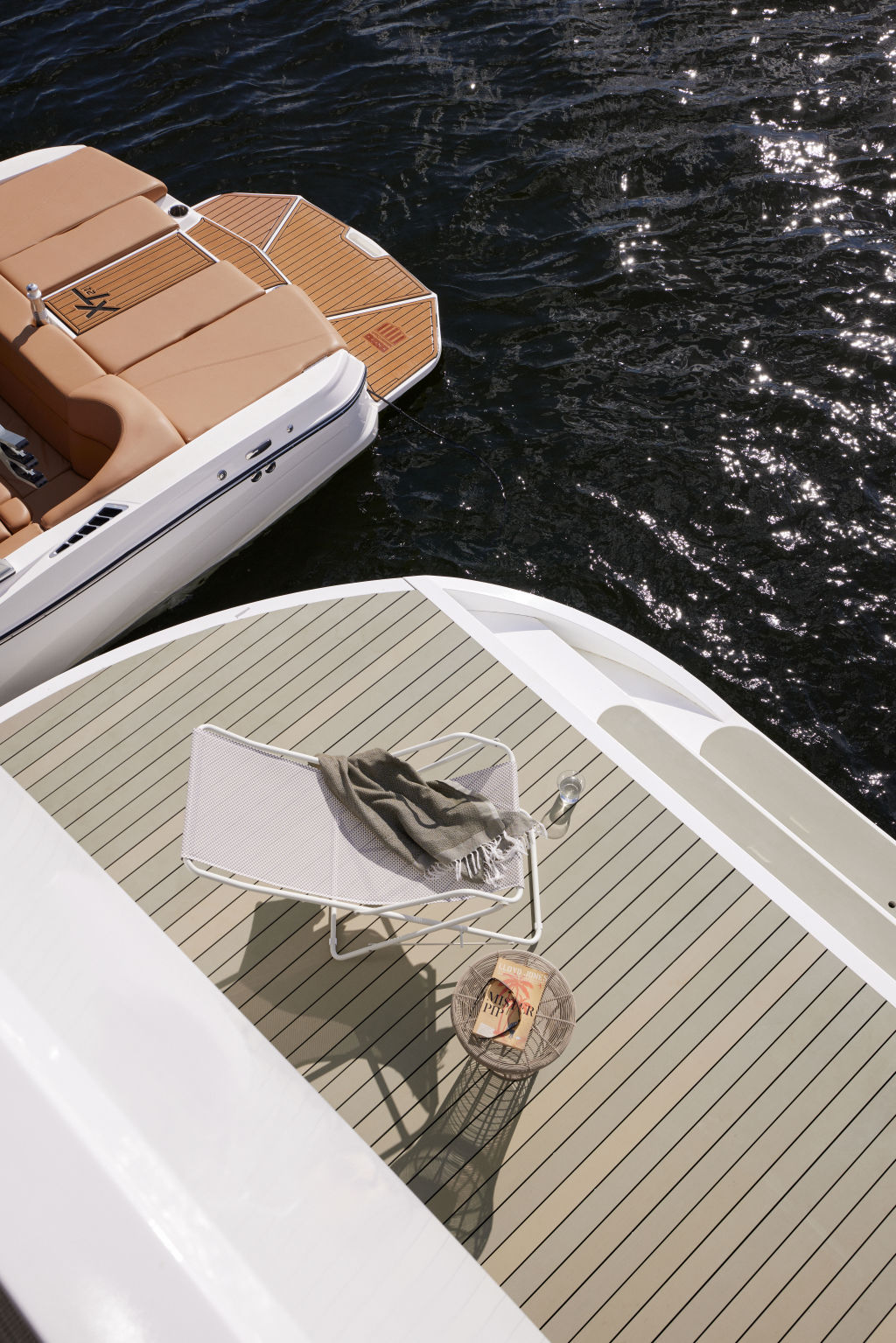
Michael Jones, owner of Luxury Afloat on the Hawkesbury River in NSW, says business is going so well he plans to convert some of his fleet of nine houseboats to solar technology. At $1.5 million per boat, it’s an expensive exercise, but he believes it’s worth the investment.
“I’ve had boats, all sorts, all my life, but I can tell you the boat most people like to be in and that’s a houseboat,” he said.
“A, it’s comfortable and B, people don’t really want to go fast – they want to tootle along and take in the scenery.”
Boating groups would like to see more houseboats on Australian rivers and coastal waters. At Lake Eildon, the Boating Industry Australia of Victoria is lobbying the state government to increase the number of houseboating licences by 10 per year for the next decade.
“It would not only be good for recreation, to give another 100 families or groups the chance to take part, it would also basically insure the industry, jobs and community development there for the next decade as well,” said Steve Walker, chief executive of the Boating Industry Australia of Victoria.
“Being on the water is good for your ‘blue mind’, it’s family and friends coming together. That applies to any kind of boating really, but there’s something extra about a houseboat; it’s like you’re in a house but your view keeps changing.”
We recommend
We thought you might like
States
Capital Cities
Capital Cities - Rentals
Popular Areas
Allhomes
More
